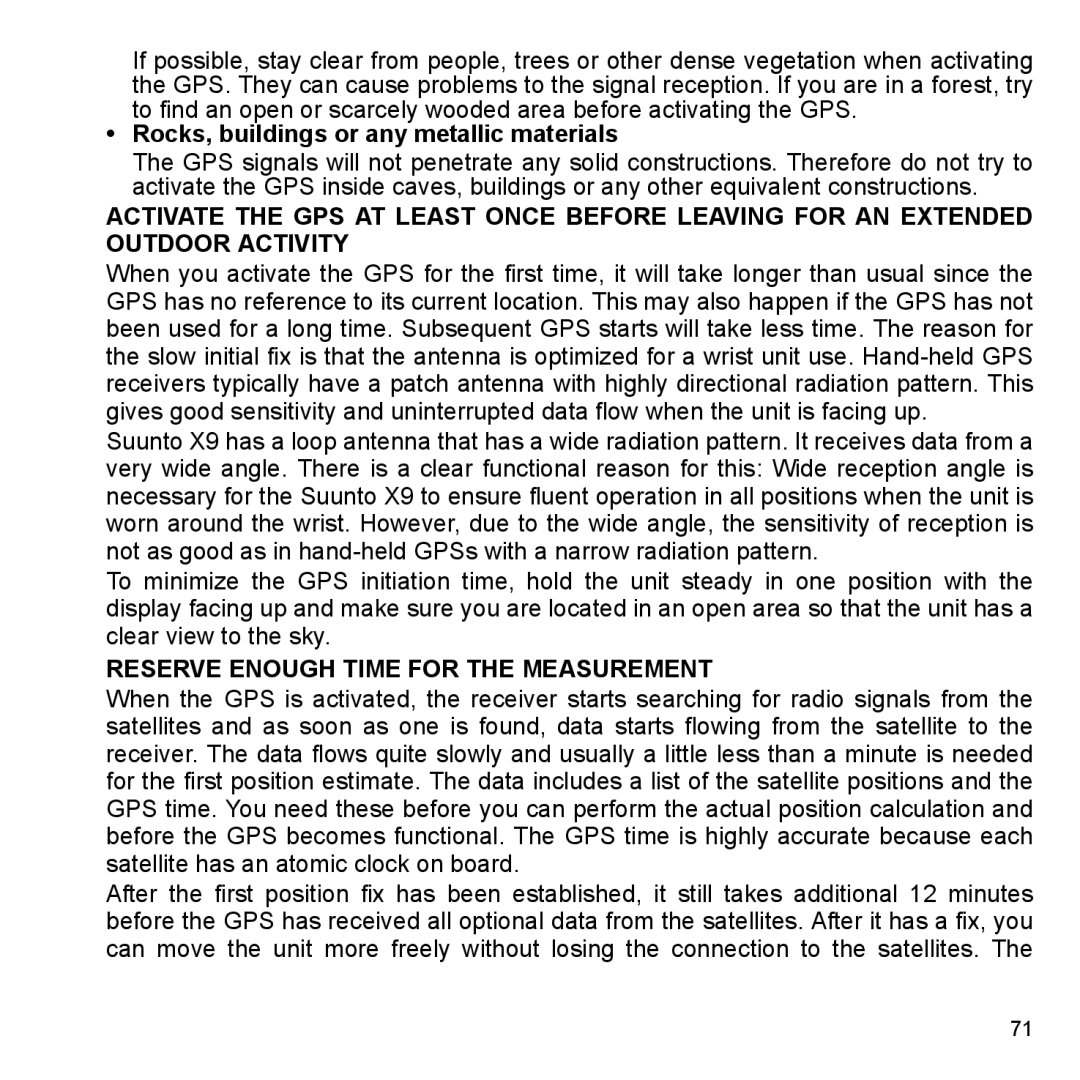If possible, stay clear from people, trees or other dense vegetation when activating the GPS. They can cause problems to the signal reception. If you are in a forest, try to find an open or scarcely wooded area before activating the GPS.
•Rocks, buildings or any metallic materials
The GPS signals will not penetrate any solid constructions. Therefore do not try to activate the GPS inside caves, buildings or any other equivalent constructions.
ACTIVATE THE GPS AT LEAST ONCE BEFORE LEAVING FOR AN EXTENDED OUTDOOR ACTIVITY
When you activate the GPS for the first time, it will take longer than usual since the GPS has no reference to its current location. This may also happen if the GPS has not been used for a long time. Subsequent GPS starts will take less time. The reason for the slow initial fix is that the antenna is optimized for a wrist unit use.
Suunto X9 has a loop antenna that has a wide radiation pattern. It receives data from a very wide angle. There is a clear functional reason for this: Wide reception angle is necessary for the Suunto X9 to ensure fluent operation in all positions when the unit is worn around the wrist. However, due to the wide angle, the sensitivity of reception is not as good as in
To minimize the GPS initiation time, hold the unit steady in one position with the display facing up and make sure you are located in an open area so that the unit has a clear view to the sky.
RESERVE ENOUGH TIME FOR THE MEASUREMENT
When the GPS is activated, the receiver starts searching for radio signals from the satellites and as soon as one is found, data starts flowing from the satellite to the receiver. The data flows quite slowly and usually a little less than a minute is needed for the first position estimate. The data includes a list of the satellite positions and the GPS time. You need these before you can perform the actual position calculation and before the GPS becomes functional. The GPS time is highly accurate because each satellite has an atomic clock on board.
After the first position fix has been established, it still takes additional 12 minutes before the GPS has received all optional data from the satellites. After it has a fix, you can move the unit more freely without losing the connection to the satellites. The
71
